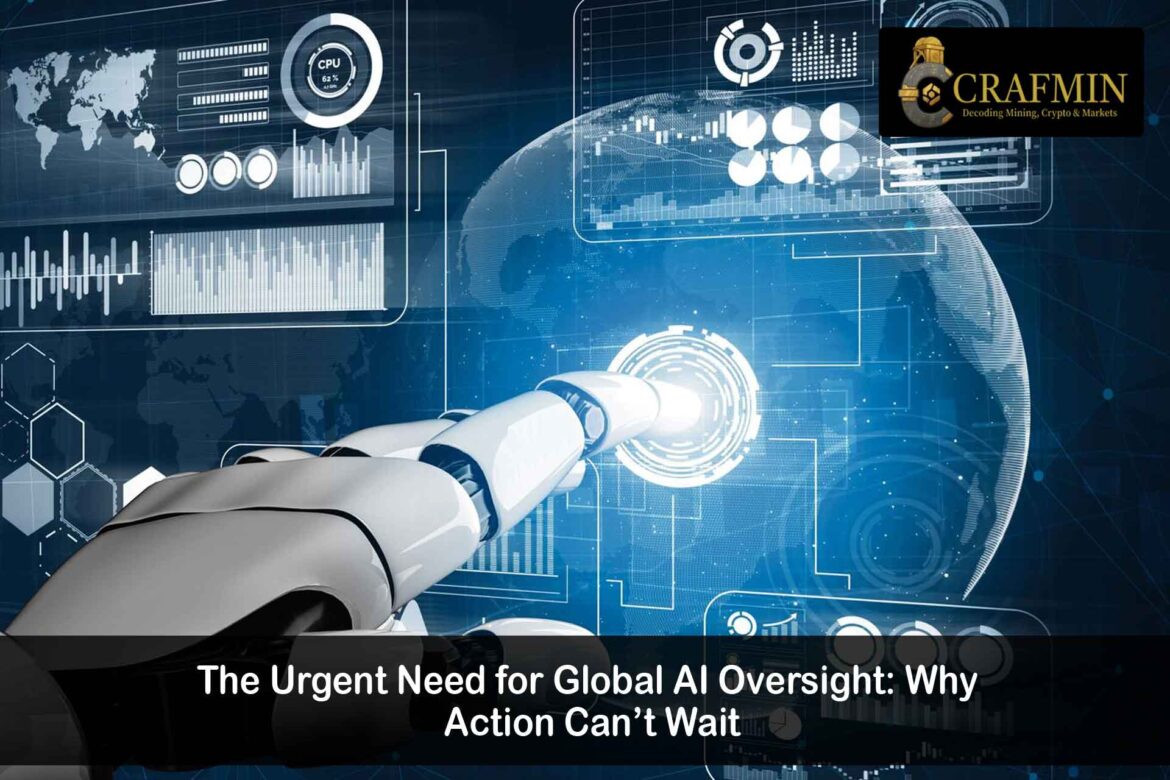A leading data specialist has issued an urgent warning: if global cooperation does not result in strong worldwide regulation of artificial intelligence, we risk irreparable damage.
As these technologies progress at lightspeed, more and more policy and science leaders are converging to one message—we must have an enforceable, collective set of standards to guide and manage AI before it becomes uncontrollable.
This is not some far-off threat. It’s happening now.

Why Global AI Regulation Must Happen Now ( Image Source: Okoone )
The Real Danger: Not the Tech Itself, But the Lack of Rules
The issue isn’t just about machines becoming too smart. It’s about how fast they’re evolving without guardrails.
Already, we’re seeing manipulated videos influencing elections, decision-making software discriminating against communities, and job sectors disrupted overnight. What happens when these systems start improving themselves—without any oversight?
Without governance, the risks quickly move from minor errors to serious societal harm.
No Country Can Do This Alone
AI isn’t confined to national borders. A surveillance tool designed in one country can easily be deployed halfway across the world. A faulty algorithm in one region might be licensed globally, impacting millions.
That’s why strong global AI governance is more than a policy dream. It’s essential.
Local policy helps—but not enough. The real gap lies in how disconnected each country’s plan is, so it’s all too convenient for bad actors or flawed systems to creep into the cracks.
Also Read: Speakman Wants AI in Schools. Here’s What That Means for NSW
The Warning Is Clear: Don’t Wait for the Crash
One researcher likened today’s AI moment to the early days of nuclear energy or climate science—high stakes, low coordination, and slow-moving governments.
The difference? AI moves faster. Much faster. It’s already embedded in hospitals, classrooms, defence systems, and online platforms.
What’s missing is a common set of rules. Who audits the algorithms? What data use is fair? Where’s the human oversight? These are urgent questions, not tomorrow’s problems.
Partner content: Read @esynergy_‘s report Leading from the Front for insight on how to use data and digital integration to cut costs and improve public services. https://t.co/mSlFGP1IW2
— Global Government Forum (@globegov) June 24, 2025
More Than a Tech Issue—It’s a Human One
This isn’t about fearing innovation. It’s about leading it responsibly. Yes, AI can resolve traffic problems, detect diseases at an early stage, and make life easier.
But without strong guidelines in effect, it can just as readily be used to spread misinformation, displace jobs, and undermine online security.
Worried parents, uncertain doctors, anxious workers, and even software developers are all asking the same thing: who’s in charge, and can we trust the tools?
What a Global AI Framework Could Look Like
Experts are proposing several key ideas to rein in risk while supporting innovation:
- A universal charter to outline what’s acceptable AI behaviour across borders
- Global review teams that assess powerful systems before they’re rolled out
- Transparent monitoring systems built on open-source frameworks can help flag potential misuse or bias in AI tools before they cause harm.
- Inclusive policymaking that brings in diverse voices—not just government and tech leaders
- Protections for whistleblowers who speak up against unethical AI use
Australia’s Role on the World Stage
Australia is already taking steps, reviewing AI use across multiple sectors like healthcare and transport. Advocacy groups are also pushing for inclusive, transparent policy development.
But the nation could play an even bigger role—acting as a mediator between major powers and emerging tech hubs. With its stable governance and global partnerships, Australia is well placed to lead cooperation efforts that bridge divides rather than deepen them.
What Needs to Happen Right Now
Time is not on our side. Here’s what global leaders must prioritise:
- Host international discussions focused on setting AI rules as urgently as climate or cybersecurity issues
- Align national policies to avoid contradictions and loopholes
- Ensure enforcement so that any rules created actually hold weight and are not just symbolic AI isn’t waiting. Neither should the world.
Final Word: Steering, Not Stopping
Technology continues to evolve rapidly, and it’s our duty to ensure that regulation keeps pace. As intelligent systems grow more independent, our rules and responses must be equally thoughtful and agile.
This isn’t about slowing tech down. It’s about ensuring the direction benefits people first.
Because the goal isn’t to control machines. It’s to safeguard humanity.

